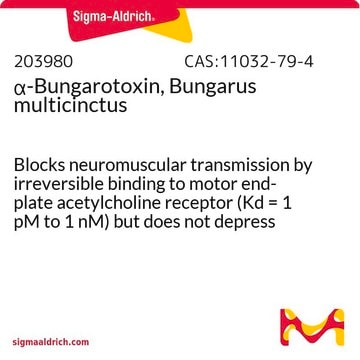S8251
Succinylcholine chloride dihydrate
98.0-102.0%, solid
Synonym(s):
Bis(trimethylammonioethyl) succinate chloride, Succinyldicholine dichloride
About This Item
Recommended Products
Quality Level
Assay
98.0-102.0%
form
solid
color
white
solubility
H2O: complete 100 mg/ml, clear to slightly hazy, colorless
H2O: soluble (unstable at pH > 9.)
originator
Novartis
SMILES string
O.O.[Cl-].[Cl-].C[N+](C)(C)CCOC(=O)CCC(=O)OCC[N+](C)(C)C
InChI
1S/C14H30N2O4.2ClH.2H2O/c1-15(2,3)9-11-19-13(17)7-8-14(18)20-12-10-16(4,5)6;;;;/h7-12H2,1-6H3;2*1H;2*1H2/q+2;;;;/p-2
InChI key
FFSBEIRFVXGRPR-UHFFFAOYSA-L
Looking for similar products? Visit Product Comparison Guide
Application
Biochem/physiol Actions
Features and Benefits
Reconstitution
Signal Word
Danger
Hazard Statements
Precautionary Statements
Hazard Classifications
Acute Tox. 3 Oral
Storage Class Code
6.1C - Combustible acute toxic Cat.3 / toxic compounds or compounds which causing chronic effects
WGK
WGK 3
Flash Point(F)
Not applicable
Flash Point(C)
Not applicable
Personal Protective Equipment
Certificates of Analysis (COA)
Search for Certificates of Analysis (COA) by entering the products Lot/Batch Number. Lot and Batch Numbers can be found on a product’s label following the words ‘Lot’ or ‘Batch’.
Already Own This Product?
Find documentation for the products that you have recently purchased in the Document Library.
Our team of scientists has experience in all areas of research including Life Science, Material Science, Chemical Synthesis, Chromatography, Analytical and many others.
Contact Technical Service







